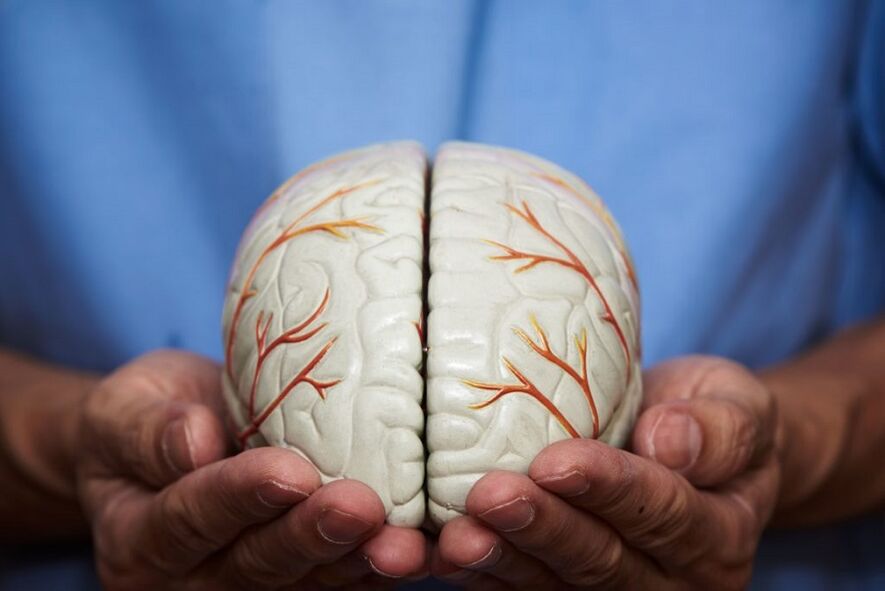
Everyone knows that eliminating alcohol dependence and stopping drinking is very difficult and almost impossible for many. He keeps his alcohol consumption tightly in his hands. Overcoming a psychological addiction controlled by your own brain is a difficult task because in most cases, the brain does not obey you, but your body obeys the brain. The body wants to drink water and you will be looking for water. The body wants to eat, gives a signal to the brain, and he, directing you, seeks food. And the brain wants a dose of alcohol, and you want to drink. So why is there a desire in our bodies, or even in our brains, to drink an alcoholic beverage?
Why does the brain want to drink alcohol?
This is where we need to look when the connection between the brain and drinking begins to form. Everyone may note that the onset of alcohol consumption is primarily associated with good and bright events — holidays, weddings, birthdays, and corporate parties. And remembering those holidays you remember, which means your brain only remembers the joy, the fun, the good mood. If it happened badly from excessive drinking, it happened the next day, and there’s always an excuse for that - they say, drunk with someone you don’t happen to, but it was fun.
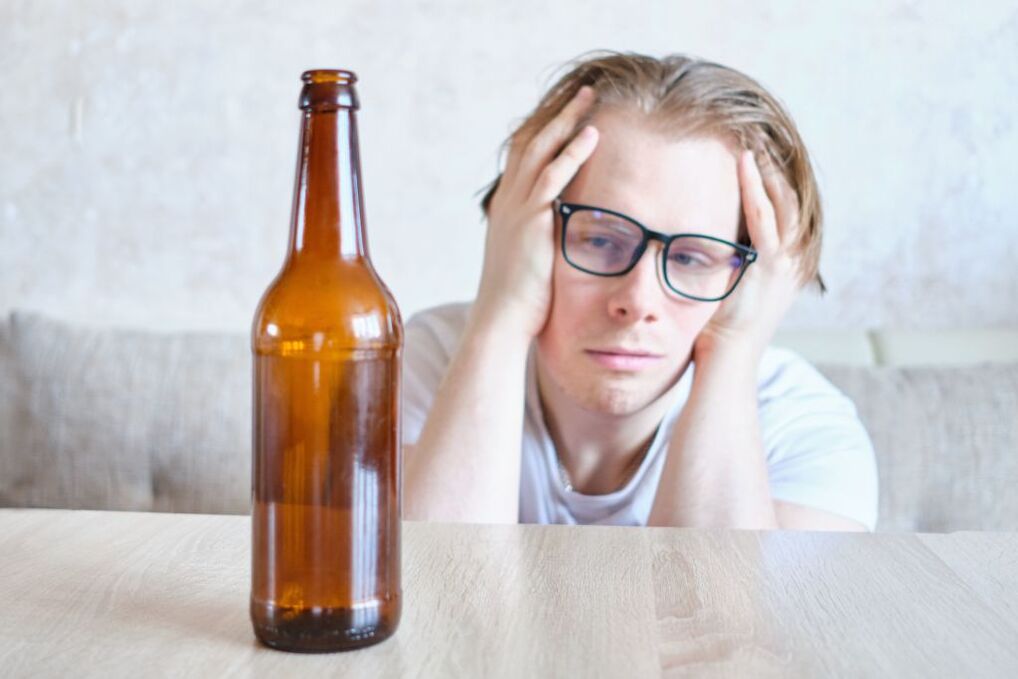
In addition, many people notice that after a hard day's work, a glass, another alcohol or even a light beer, such as beer, immediately after getting rid of stress, a good mood comes, the fatigue recedes. Experts explain this by saying that alcohol actually belongs to the group of drugs, and in 1975 the World Health Organization likened alcohol to a drug. Once it enters our brain and has virtually no barrier to access in our body, it affects the dopamine nerve cells that are excited and start producing dopamine, actually producing the hormone of happiness and pleasure. The brain senses the onset of this period and begins to associate it with alcohol consumption, which actually leads to a strong, stable positive psychological relationship between alcohol consumption and the brain. Then, to get the same "pleasure, " you have to drink more and then more often as the sensitivity of dopamine receptors becomes duller and more. And in fact, a person flows smoothly into the second stage of alcoholism when there is not only a psychological connection but a physiological dependence on alcohol consumption. which requires immediate treatment of alcohol dependence.
How to stop drinking?
Therefore, those who understand their "future", where their lives are spent drinking frequently, and who want to get rid of this growing addiction, actually have to deal with the brain itself, which has a stable psychological connection, and drink alcohol to be lively after drinking, "rejoices. "get moments in life.
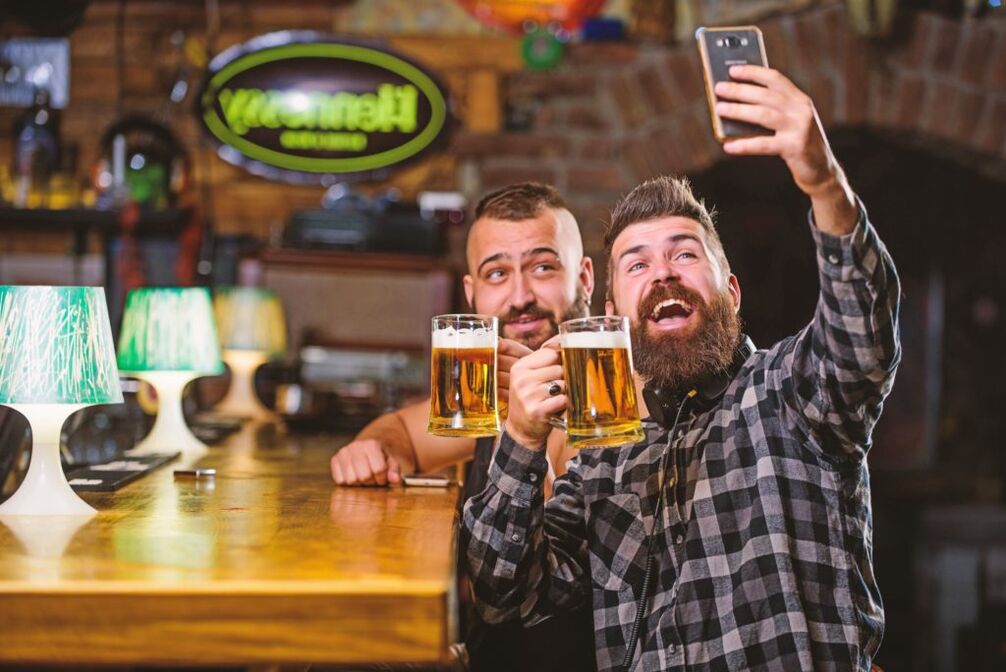
Step 1 - Recognize that the brain is actually our worst enemy!
Every problem we face initially arises deep in it (fear, anxiety, reluctance), this is the work of the brain. It creates barriers for us, creates difficulties, shapes habits, and prevents us from coping with them.
Drinking alcohol produces a huge amount of dopamine, which is secreted by the brain during contact with alcohol, a neurotransmitter that is responsible for the pleasure, euphoria, pleasure of the brain. This number is so large that it overshadows even the most joyful moments of our lives. This "undeserved" stream of joy and pleasure comes precisely from the effects of alcohol on the brain. I want to quickly relieve stress from life "is the easiest way to drink alcohol without trying to solve the accumulated difficult tasks and then enjoy the solution.
Step 2 - All desires are based on desire!
Only desire can completely rebuild your brain and make the right order in it. Just the desire to get more "hard" pleasure, "harder" pleasure, after applying a lot of force, and not only - I drank and "I feel good and I don't care about anything. "Just the desire to get real "deserved" pleasure interrupts the brain’s desire to get "easy" pleasure quickly, here and now. Because as soon as he made the decision to give up alcohol, he declared war on his brain, at the same moment he formed a command in his head for other "work" desires and took the direction of sobriety.
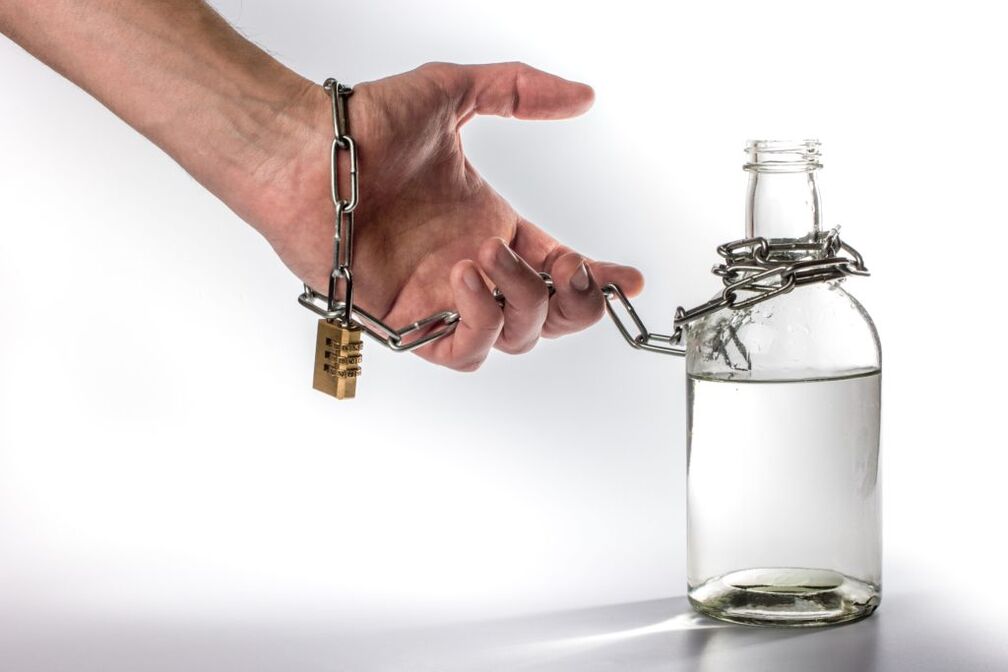
Step 3 - Exiting is easy! It's hard to start again!
Don't start over. . . Sometimes it is fatally difficult! Therefore, giving up addiction is always a war. The brain evokes a sharp desire to accept something and removes all obstacles to it. Your will is the only obstacle to drinking alcohol.
Ethanol (alcohol) is a powerful stimulant of joy and euphoria in the brain. If you stop drinking, you will probably think how good it would be to drink beer, vodka or brandy now. Remembering alcohol is a pleasant event, but otherwise the brain will not remember alcohol, which causes it a lot of joy and euphoria, and all at once, will not be able to resist the urge to drink. Here, you either need to be able to think of alcohol as a bad event, or you need to be coded. Alcohol coding helps to relive this moment of desire and gives time for alcohol consumption to be negative.
4 steps - it doesn't take long!
Therefore, this desire must be assessed. . . Rate on a 10-point scale. How strong is the desire (like a typhoon or a storm). Rarely, when we recognize the degree of desire, the scale reaches 10 points of thirst. Therefore, based on the results of consciousness, it is necessary to turn this weak power into another activity.
Start getting simple, natural human pleasures from life, work, family, hobbies, communicating with other people. Never drink alcohol, otherwise you have to start all over again.
The more varied the new entertainment, the faster the brain adapts to normal low dopamine levels, and as we remember, alcohol dramatically and often artificially increases the body’s dopamine levels.
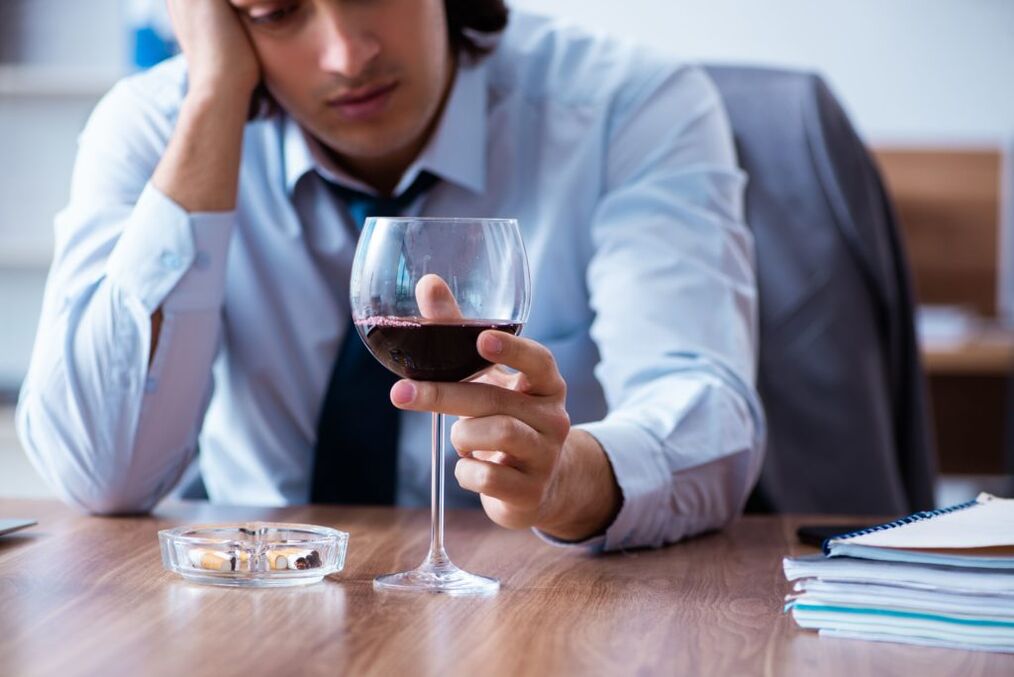
Step 5 - Only throw alcohol!
We do not recommend stopping smoking and quitting at the same time or giving up your favorite foods. If you do this all at once, the risk of collapse increases many times over, because when you give up everything, your brain experiences much more stress than when you give up certain habits or addictions. At first, you can keep the bad habits of the others.
Therefore, if you decide to stop drinking, stop drinking. If it is more important to quit smoking, stop smoking. If you drop everything at once, you will not be able to resist the double or triple temptation. And if you break off, for example, from smoking, you will most likely fall down by giving up alcohol.
Step 6 - Make no mistake!
In week 1, the most difficult moments occur when you stop drinking alcohol. Fear, anxiety, increased desire. Whatever we may say here, it is very difficult to cope without medicine. If you understand that this will only get worse, it is better to seek medical help from your doctor. There are medications that actually reduce the craving for alcohol, reduce stress, and eliminate discomfort.
In such cases, it is strongly recommended that you contact the doctors of the drug treatment center. They help you choose the right life cycle system to stop drinking. Provide the body with the necessary medicines and optimally selected vitamins and minerals. Manage your well-being with the latest medical tools.
After all, the most important thing is not to break up and start drinking again.
Step 7 - You need support!
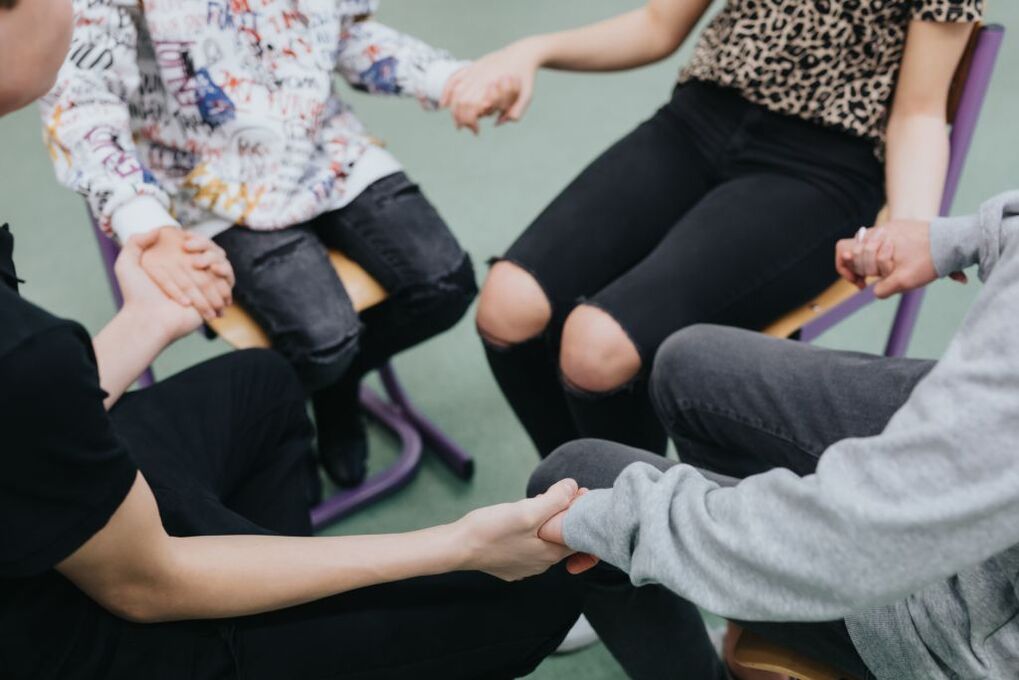
It is always possible to contact the Alcoholics Anonymous group for support. If we reject all conventions and willingness, it is obvious that people are able to help each other. Without support, we are virtually helpless in everyday life as well. If you do not want to join the Alcoholics Anonymous group, you have the option to contact the psychological support service.
Step 8 - Burn the adrenaline!
Due to the rejection of alcohol, due to the marked increase in the amount of adrenaline in the blood, it must be burned. Burning adrenaline without influencing others is only possible through physical activity. As in all our lives, this must begin gradually. It is better to have the opportunity to work out in the gym. If not, a little outdoor walking or jogging is enough.

If you give up alcohol, take more walks, meet friends and relax actively.
When you engage in sports activities, it not only helps burn adrenaline, but also strengthens your muscles, nervous system, health, and gives your brain new tactile and physical sensations and forces you to distract yourself from your thoughts about alcohol. This kind of "work" of the brain has a beneficial effect on movement through sobriety and an active sober life.

Walk and travel more with a complete rejection of alcoholic beverages.
Go hiking, traveling where the brain has nowhere to hide with its thoughts about alcohol. Place and burn old memories of pleasant drinking with new impressions.
Step 9 - You will succeed! Do not doubt!
It is important to resist: sleep, nutrition, try to keep the mood, and the mood is positive. Moreover, this applies to all people, as we are all dependent on something. That is why diet is so important to achieve a positive result. only the regime can arm us to fight (primarily with ourselves)

Step 10 - Try to be happy!
Being sober after drinking alcohol is pretty boring. The world around us ceases to indulge in colors and events because they lack the strength to break the euphoric state of alcoholic intoxication. This boredom is also a product of our brain. Therefore, you have to constantly look for yourself: a new hobby, interest, desire. Happiness is a product of our brains (as are fears). The brain is customizable and it’s up to you.
Popular questions and answers about alcohol
Every time I stop drinking and I can’t restrain myself - do I start again, what should I do?
It is very difficult to quit drinking. The neural connections established in the brain between the positive idea of alcohol consumption and the reception of joy, pleasure, and euphoria cannot be destroyed without a fight. Alcohol belongs to the group of drugs and will not work if you expel its effects on the body without much work, perseverance and willpower.
If you don’t have enough willpower to resist alcohol, think of coding as an option to stop drinking alcohol.
If you are full of perseverance and strength in overcoming alcohol dependence, then:
- Do not give up.
- Try to fool your brain because it is the leader of your body. Think of alcohol badly as a toxic substance and only remember bad experiences with drinking. Imagine it as an extremely dangerous substance and drink in disgust, keeping strong alcohol in your mouth, especially to get in trouble. Do everything intentionally to make alcohol consumption uncomfortable.
- Start drinking in very small portions. Just a little sip. Be adamant about this.
- For any alcoholic suggestion, turn your desire to the non-alcoholic beverages you like best and just drink for fun instead of alcohol.
Try to resist alcohol addiction with all your knowledge and tricks. Remember, alcohol controls your brain.
Can alcohol coding be part of treating alcohol dependence?
Coding is often included during treatment so that the patient can live the coding time without drinking. During this time, you can usually improve your health by breaking away from alcoholic beverages, restoring family and work relationships if they have been violated due to alcohol dependence, and recovering both morally and physically.
Can someone drink alcohol and not be an alcoholic?
It certainly can. There are many such people. They are aware of the dangers of drinking in large quantities and do not allow themselves to get drunk in the "trash", sleep over, quarrel with their wife, ruin their health and cause a lot of other trouble to themselves. Even the most resistant to alcohol dependence, if you drink a lot of alcohol almost every day, the habit of consuming alcoholic beverages quickly develops. And if we consider that alcohol belongs to the group of drugs approved by the World Health Organization in 1975, alcohol dependence most likely covers almost everyone who drinks a lot and often. Therefore, consume only limited amounts of alcohol, which does not lead to addiction.
























